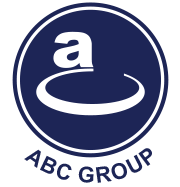Taxation
ABC Asian Legal Service Co., Ltd. offers the client expert tax advice concerning their personal tax and corporate taxation. We realize that your long-term goals and needs are just as important as any current tax issue. By understanding what you want to achieve and how your business works, we can provide the efficient tax consulting to protect your assets.
The taxation in Thailand is governed by the Thai Revenue Code. Being the central government as the main taxing authority, taxes are imposed both at national and local levels in Thailand. The Revenue Code includes the Corporate Income Tax, the Value Added Tax (VAT), Specific Business Tax (SBT), Personal Income Tax.
Corporate Income Tax
All companies and partnerships which are registered under Thai law or which are formed under foreign laws and carry on business in Thailand are subject to the corporate income tax. Subject to possible exceptions under tax treaties, the Corporate Income Tax also applies to foreign companies and other entities either doing business in Thailand or receiving income, which is paid from or within Thailand.
The corporate income tax is imposed on the net profits earned on income arising from or in consequence of business carried on in Thailand. Net profit is calculated by deducting from gross income the expenses that are allowed under the Revenue Code and supplemental regulations.
A company subject to the Thai Corporate Income Tax can choose a twelve-month period as its fiscal and tax year, though a large majority of companies doing business in Thailand choose the calendar fiscal year.
Value Added Tax (VAT)
VAT is chargeable on the increase in the value of goods sold or services rendered inside the country in the course of business or professional practices including services rendered outside but used inside Thailand. The increase in the value of the goods or services is the difference between the cost of acquisition of the goods or provision of the service and the sale price of the same. VAT is added to the sale price of the goods or services charged on the customers and is evidenced by the VAT tax invoices issued by the sellers of goods or providers of services. The basic rate for most VAT transactions is 7%.
Any exchange of goods or services performed or used in Thailand might be subject to VAT. For the taxation purposes an "exchange" includes the exchange of goods or services for money and barter transactions. VAT is chargeable on transactions only if they are made inside the country. The only exception where VAT is chargeable on a transaction made outside the country is where services are rendered outside but used within the country.
Business operators earning more than 1,800,000 Baht per annum must register for VAT within 30 days of the date they reach 1,800,000 Baht in sales. A business registered under the Thai VAT system generally receives a credit for the VAT it pays when buying goods or services ("input tax") and a liability for the VAT it receives from customers when they purchase the businesses goods or services ("output tax"). A business registered under the VAT must file a monthly return with the Revenue Department.
Specific Business Tax (SBT)
The SBT is imposed on certain types of businesses whose value added is difficult to define such as banking, finance, life insurance, pawnshops, and real estate. Such businesses are considered to be outside the VAT system and therefore are not subject to VAT. Specific business tax is computed on monthly gross receipts which do not include municipal tax. Unlike the VAT, the SBT is paid by the business engaged in the activity, not by its customers, although in some commercial transactions the SBT is passed on to the customer by contract. Also unlike the VAT, the SBT is a true tax on businesses. They receive no credits for SBT.
Personal Income Tax
Income earned by an individual in Thailand is subject to the personal income tax regardless of whether such income has paid inside or outside of Thailand. An individual who is present in Thailand for more than 180 days in any tax year is treated as a resident of Thailand, for tax purposes. Residents are also subject to income tax on income from foreign sources to the extent that such income is brought into Thailand in the same taxable year that he is deemed to be a resident. The Thai personal income tax is imposed on net income. The Personal Income Tax is withheld from the salary of all regular employees by the companies. The tax treaty provisions on personal services often provide relief to persons who work temporarily in Thailand.


